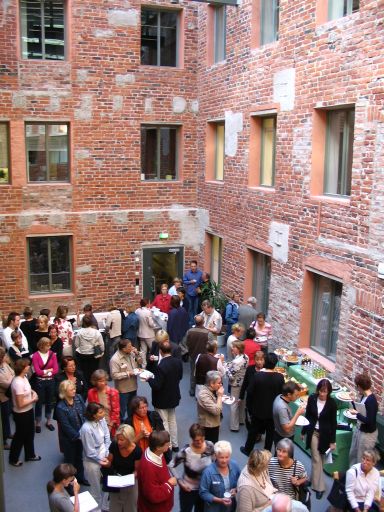Å muliggjøre danning gjennom måter å forske på: om betydningen av bilder, scenarier og historiske linjer.
Førsteamanuensis, Kirsten Sivesind, Institutt for pedagogikk, UiO
Danning fordrer bestemte kvaliteter ved et utdanningstilbud og ikke en «hvilken som helst» praksis. Derfor kan danning både muliggjøres og umuliggjøres. En ikke-affirmativ pedagogisk teori handler både om formål (moralsk sett) og forhold (empirisk sett) som muliggjør danning, og man kan spørre seg – er disse kvalitetene ivaretatt og ønsket i sammenhenger hvor utdanningspolitikken formuleres? Hvordan kan man som læreplanforsker ivareta et ikke-affirmativt perspektiv gjennom måter å forske på? Foredraget vil starte ut med klassiske perspektiver på danning og betydningen av tenkning og handling slik Herbart og Dewey tok til orde for. Deretter argumenteres det for å ta i bruk både teori og empiri for å synliggjøre kvaliteter som muliggjør danning. Helt avgjørende er refleksiviteten i forskerens måte å uttrykke seg på: Hvordan fremstilles virkeligheten gjennom bilder? Hvordan skapes forestillinger om framtiden? Hvilken betydning tillegges historiske linjer? Svarene på disse spørsmålene angår prinsipielle sider ved læreplanforskningen men like mye om de faktiske forhold: om kvaliteter ved dagens reformer muliggjør eller umuliggjør danning.
Grounding Research on Curriculum Work and Reform in and for Political Democracy in Education Theory
Professor Michael Uljens, Fakulteten för pedagogik och välfärdsstudier, Åbo Akademi
The assumption in this key-note is that curriculum research need to provide conceptual thought models and theories, but also practical models guiding teaching, leadership and school development that enable practitioners, policy makers and leaders to identify, make sense and talk about the complexity of education, without losing sight of core educational issues. How does educational theorizing live up to such demands? It is worrying that despite increasing complexity of teaching, studying and learning in multiple contexts, education as a field of study appear to dissolve into particularities. All too often education is seen as a ‘field of research’ applying insights from other academic disciplines like psychology, sociology, philosophy, justice, economy, subject matter theory, or politics thus hindering a coherent educational contemplation of the complexities at hand. The key-note explores how non-affirmative education theory might be fruitful for conceptually explaining how Bildung and education are related, and how different actors and practices, at different levels of the education system mediate between the transnational, national, regional and local levels?
NAT reminds us that the education system as a whole must recognise or pay attention to existing interests, policies, ideologies, utopias and cultural practices but that this education is not asked to affirm these interests. Not affirming various predefined interests that are external to educational practice means not passing these interests, knowledge or practices on to the next generation without making these phenomena objects of critical reflection in a pedagogical practice with students. In arguing for such a position non-affirmative theory identifies various forms of subjectivity and intersubjectivity that are interrelated by pedagogical activity.
